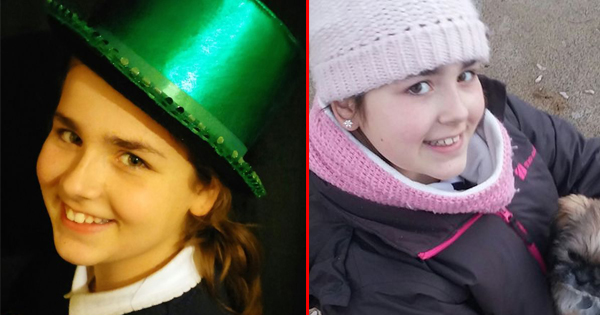A girl who’s only 11 years old had enough experience of misdiagnosis for the rest of her life. After doctors missed a tumor in her brain for at least twenty-two times, the girl finally underwent an emergency surgery for its removal, the Mirror reports.
Poppy Eden’s brain tumor wasn’t identified by multiple doctors and professionals for three years. Poppy’s mother, Karen, said that the amount of time it took to get the answers they were looking for was “agonizing.”
Poppy’s family vowed to support research and raise money to combat the disease. Now, the girl, who lives in Chatham, Kent, is living her life with the happiness of a regular child.
Poppy joined Brain Tumor Research’s Wear A Hat Day and promoted the cause in order to increase funds for the research.
She started having symptoms in the form of headaches when she was only seven. After her surgery, Poppy continued to pursue her passion for dancing.
Karen, who’s 38 years old, said, “Throughout it all I felt that no-one was listening and I was at the end of my tether.”
She continued, “The awful thought that Poppy might have a brain tumor crossed my mind, of course I didn't want to go down that road and we were told that it was unlikely anyway because symptoms come on really quickly. I now know, of course, that this is far from the case."
But in February last year, Poppy kept on waking up from her sleep feeling pain in her head. Her parents immediately took her to Medway Hospital in Kent and ran her through a CT scan. There, they found that Poppy had been nursing a brain tumor for years.
Karen said, “The results came back quickly. It was the scenario which any parent dreads and I knew something bad was about to happen as we were ushered into a quiet room.The scan had shown a mass on Poppy's brain and, within hours, we were transferred to King's College Hospital in London.”
She continued, "After three years of missed opportunities to get to the bottom of what was causing Poppy's pain, she was taken in for emergency surgery. I feel terribly let down that there were so many missed opportunities when Poppy could have been diagnosed earlier.
"Poppy had been a trooper throughout those months and years before she was diagnosed. She must have been in such extreme pain yet she carried on for so long, had very little time off school, continuing with her dancing and was even in a pantomime just weeks earlier."
The operation took ten hours and 60 percent of the tumor was removed. Doctors discovered that a pilocytic astrocytoma was growing from Poppy’s brain stem, which was low-grade. Poppy received an agreeable prognosis.
Karen said, “We are delighted that, after everything she has been through, Poppy is now happy and well. A year ago, we were frightened to think what the future may hold. Now, Poppy is doing well and dancing again."
Sue Farrington Smith, chief executive of Brain Tumor Research, said, “Poppy is an incredibly brave girl and we are so pleased to hear she's doing well after her experience.
"Unfortunately, this is not always the case. Brain tumors kill more children and adults under the age of 40 than any other cancer yet just 1% of the national spend on cancer research has been allocated to this devastating disease.
"Significant research investment is critical if we are going to beat brain tumors. It's not a lost cause and Brain Tumor Research is focused on supporting sustainable research that will bring us closer to a cure. Getting involved with Wear A Hat Day on March 31, like Poppy, is a great way to make a difference."
According to a report from the Petitions Committee that was obtained by BT.com, funding for brain tumor research had been underwhelming and was given second-hand importance. The national expense on research had decreased from 1.37% in 2015 - down from 1.54% in 2014, according to BP.com
Members of the Parliament had been giving the reprimanding talk to the Government for not taking the initiative in pointing differences in research and allocating funding for new and promising studies that could potentially save millions of lives.





